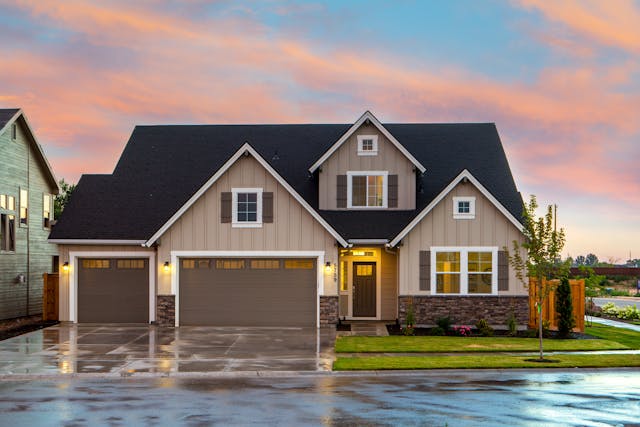In Texas, where the landscape varies from sprawling metropolises to serene suburban communities, purchasing a home can be a gateway to establishing deep roots in this vibrant state. Buying a house is a substantial financial commitment and one of the most significant decisions a person can make in their lifetime. The process demands careful consideration to ensure that the selected home not only meets your immediate needs but also serves as a sound long-term investment. Understanding what to look for when buying a house is crucial to making an informed decision that aligns with both your lifestyle and financial goals.
Location
The old adage “location, location, location” holds particularly true in real estate. The right location affects not only the day-to-day convenience and quality of life but also the future value of the investment. Prospective buyers should consider several factors including safety, proximity to essential amenities like grocery stores, hospitals, and schools, as well as the daily commute to work. A good location can also mean different things to different people; families might prioritize access to parks and good schools, while young professionals might look for vibrant nightlife and proximity to major employment centers.
Type of Home
Understanding the various types of homes available on the market is another crucial step in the home-buying process. Each type—from single-family homes and condominiums to townhouses and duplexes—offers distinct advantages and disadvantages. For example, single-family homes typically offer more space and privacy but can be more expensive and require more maintenance. On the other hand, condos might offer less privacy but come with fewer upkeep responsibilities. For those interested in a more personalized option, custom built homes in the Rio Grande Valley offer a unique opportunity to tailor a home to specific tastes and needs, providing a way to truly make a space your own.
Size and Layout
The size and layout of a home are significant factors to consider, directly impacting your comfort and lifestyle. It’s important to think about your current and future space needs, including the number of bedrooms and bathrooms, kitchen size, and additional living space. Families might look for a house with room to grow, such as extra bedrooms for children or flexible spaces that can serve multiple functions over time. Additionally, the layout of a home affects its livability and flow; open floor plans might appeal to those who entertain frequently, while a more segmented layout could be better for those needing defined spaces for home offices or study rooms.
Condition of Property
Assessing the condition of the property is vital to avoid unexpected repairs and additional costs down the road. Key elements to inspect include the foundation, roof, plumbing, electrical systems, and heating and cooling systems. The age of the home can also give insights into potential upcoming maintenance issues. Older homes might have more character but often require more maintenance and upgrading to meet current efficiency and safety standards. It’s advisable to hire a professional home inspector to uncover any hidden problems and ensure the home is in good condition before finalizing the purchase.
Market Trends
An understanding of the local real estate market trends can significantly influence your buying decision. Knowing whether the current market is favorable to buyers or sellers can help you negotiate the best possible deal. Market trends can also indicate the potential long-term value of the property, informing your decision from an investment perspective. For example, a buyer’s market might mean more room for negotiation on price and terms, while a seller’s market could lead to higher asking prices and a need to act quickly to secure a desirable property.
Future Development
When purchasing a home, it’s wise to consider any future developments planned in the area. Understanding what is on the horizon can greatly affect your property’s value and your lifestyle. For example, new schools, shopping centers, or public transportation lines can enhance property values and community appeal. Conversely, plans for industrial development or increased housing density could negatively impact your living experience. Researching zoning laws and future community plans through local planning departments can provide valuable insights and help you make a more informed decision.
Resale Value
Considering the potential resale value of a home is crucial, especially if you do not plan to live there indefinitely. Some features that enhance a property’s resale value include a good location, modern amenities, energy-efficient appliances, and a versatile layout. It’s important to think about the appeal your home will have to other buyers in the future. For instance, homes in areas with growing employment opportunities, reputable schools, and low crime rates generally maintain or increase in value over time. Evaluating these factors can ensure that your home purchase is also a sound investment for the future.
Legal Considerations
Navigating the legal aspects of buying a home is essential to ensure that there are no surprises after the purchase. This includes checking for any liens, easements, or land disputes that could affect your use of the property. It’s advisable to hire a real estate attorney to review all documents and contracts to make sure they are in your best interest and that all legal requirements are met. This step is crucial in avoiding potential legal complications that could cause financial and emotional strain down the line.
Financing Options
Understanding your financing options is another critical aspect of buying a home. Most homebuyers will need to secure a mortgage, so it’s important to shop around for the best rates and terms that match your financial situation. Factors to consider include the type of mortgage, interest rates, duration of the loan, and down payment required. Additionally, some government programs can offer first-time homebuyers special conditions that make purchasing a home more accessible. Clear knowledge of these options can help you budget effectively and choose the best financial path forward.
Inspection and Appraisal
Before finalizing a home purchase, conducting a professional inspection and appraisal is imperative. A home inspector will check for hidden problems with the house that could require costly repairs later on. An appraisal will determine the home’s market value, which is crucial for securing a mortgage and ensuring that you are paying a fair price. These assessments are valuable tools in the home-buying process, providing peace of mind and protecting against overpaying for property or facing unexpected issues after purchase.
Conclusion
Buying a house is a significant commitment and requires thorough preparation and consideration of many factors. From the property’s location and condition to legal and financial aspects, each element plays a critical role in making a successful purchase. By carefully evaluating these factors, prospective homeowners can make informed decisions that align with both their lifestyle needs and financial capabilities, paving the way for a satisfying and beneficial home ownership experience.








Find Us on Socials